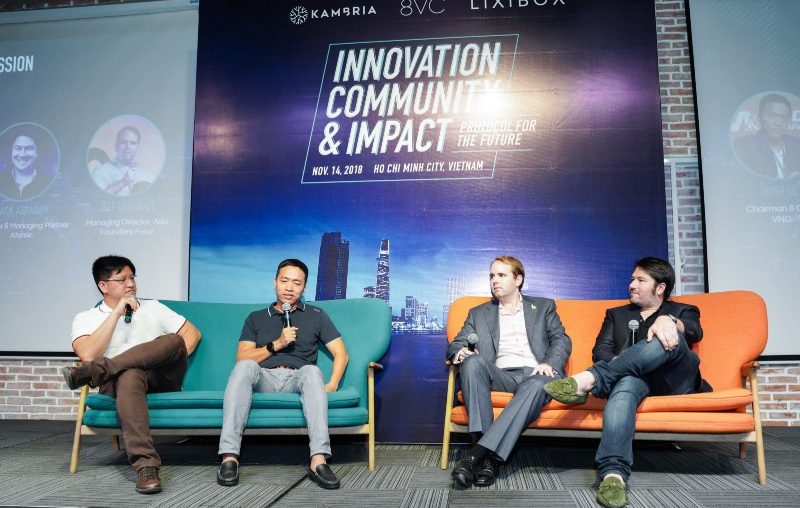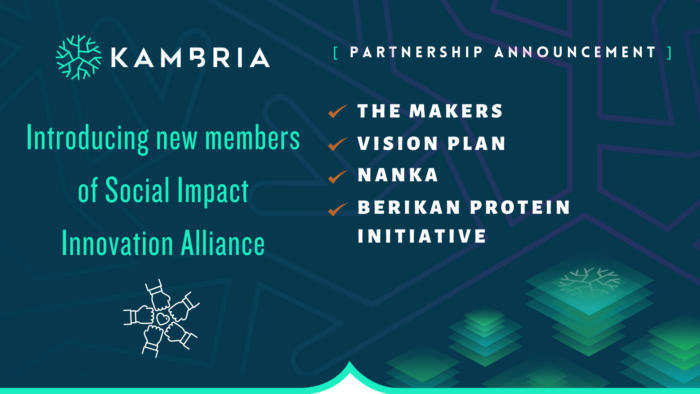This is Part 3 of a 3-part series recapping the event titled “Innovation, Community, Impact: Protocol for the Future” hosted by Kambria in partnership with Lixibox on November 14th. This event brought together prominent CEOs, successful investors, and other technology advocates to discuss entrepreneurship and how best to create an impact. There were SO many great insights shared by our esteemed guests that we’re summarizing them for you here. If you’d like to watch the event in its entirety, here is a link to the livestream.
And below are key takeaways from our panel discussion with Jack Abraham, Jeff Lonsdale, Minh Le, and Moderator Sonny Vu.
The last topic for the evening was “impact.” We hear a lot of mission-driven organizations which develop into some of the most amazing stories. But when some think about “impact investing” they think of tree-hugging or projects that constantly running out of money or asking for more.
Tell us about the high-impact companies or initiatives you have been involved in. What are some high social impact companies that have a potential for profit?
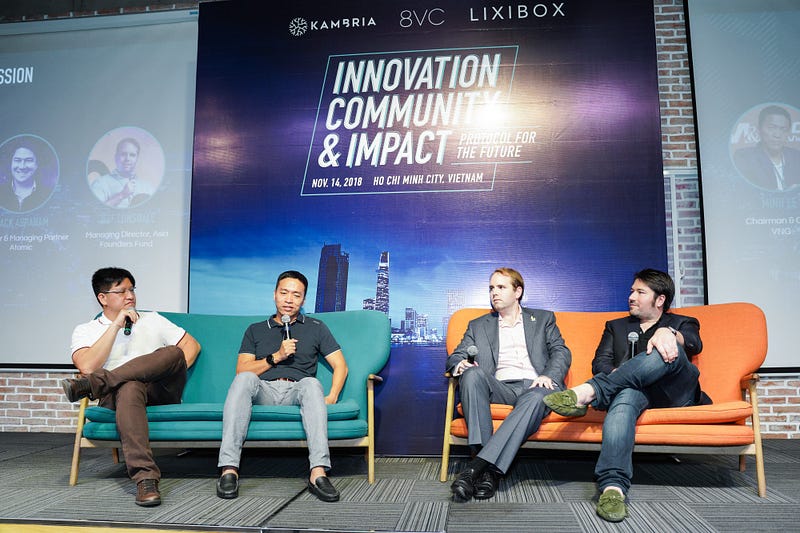
Jack: One of the companies we started at Atomic is a telemedicine company called Hims. One big problem with the healthcare system in the US is there are a lot of steps to go through before you can get treatment. The purpose of Hims is to streamline the process and lower the cost of getting healthcare for men. Hims can provide a diagnosis online and provide treatment in a short period of time. Because the distribution is so much more efficient, we can we can help more people get treatment than were being treated before the cost of treatment 20xs cheaper than going to the doctor.
Sonny: Hims is an amazing story. It is one of the most extraordinary, digitally native, vertical brands that has been created in recent years and they have really taken the world by storm.
Jack: And we just launched Hers, too. We believe telemedicine should be accessible to women so we’re really excited.
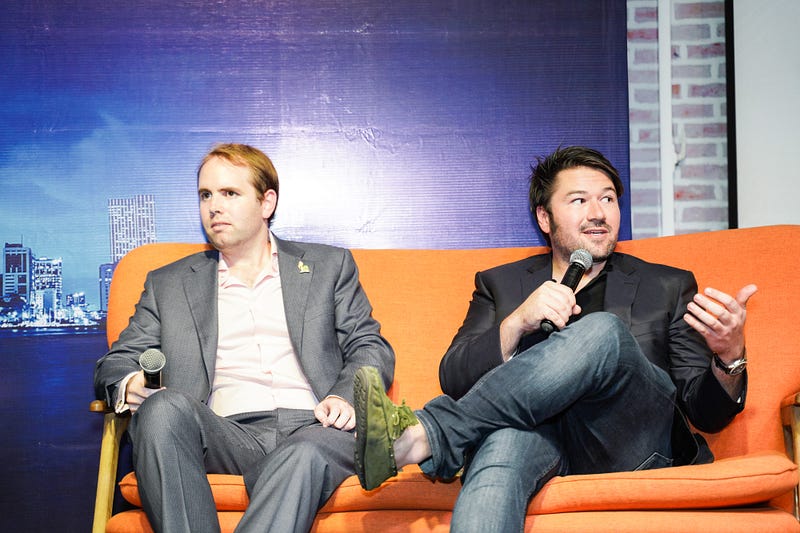
Minh: There are a lot of companies that have had a huge impact and made a lot of money, like Facebook and Google. When we think about “impact,” one of the big questions in technology now is how to measure impact and what to determine what kind of impact a company is having. Is the change positive or negative? Unfortunately, when we listen to the news about big tech these days, a lot of the news is negative.
Jeff: In most cases, the impact a company will have can be very positive. But we need to identify the cases where a company is having either a neutral or negative impact. A good example of neutral would be getting there faster than somebody else, like in high-frequency trading. Another way where impact is not positive is if you’ve figured a way to make it illegal for your competitors to operate — inappropriately using your relationships with regulatory bodies to gain an advantage. And the third way to have a negative impact is if you’re creating an addiction.
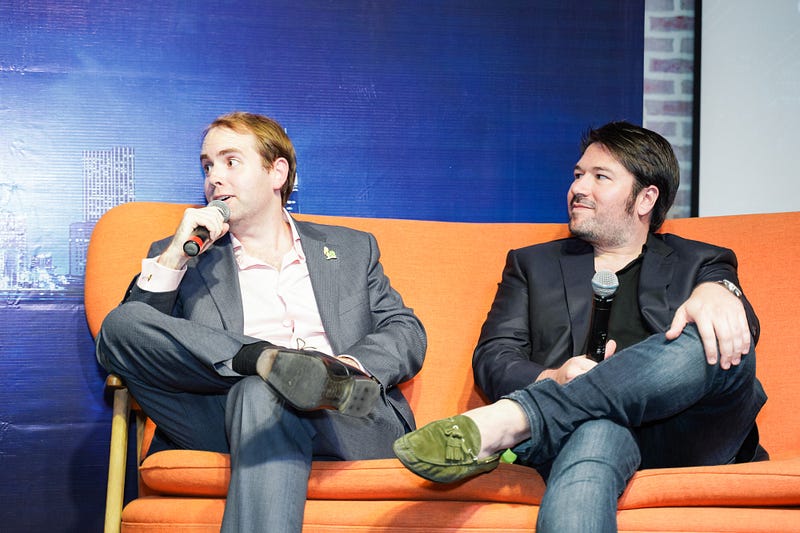
Jack: One way technology usually has an impact is to lower the cost of a product or service. A technology company can take something the rich has access to and give everyone access to it — like private car service, which is what Uber has done. So in a lot of ways, entrepreneurship and impact are linked depending on the problem you’re working on.
What do you look for in a company or founder?
Jack: The number one thing we’ve found in a great founder is someone who wakes up every day and wants to play offense. They don’t take the world for what it is. The best entrepreneurs think about the outcome they want to achieve and they change their day on the fly and how their time is spent to reach that outcome as quickly as possible. Speed is very critical to startups!
Jeff: It’s a total obsession with making things work — knowing their product, knowing their industry.
Minh: For Vietnam, the key factor of an entrepreneur is the ability to survive because there are so many factors that can hinder your success. Usually, the people who are successful in Vietnam are the ones who have been at it for a long time.

What is the most important skill for a future founder to learn or hone?
Jeff: Getting things done — not thinking you’re too good to handle something.
Jack: I think the most important attribute is learning how to sell and being good at it. A lot of people think “sales” is a dirty word. But as an entrepreneur, all you’re doing all day — if you’re effective — is selling. You’re selling your idea, you’re selling someone to join your company, you’re selling an investor, a partner, a supplier. Communication, the ability to convey your vision, and to consistently get people excited about it is really important.
Minh: I suggest that the entrepreneur learn how to write. Writing will help you improve your communication skills. And it will also you organize your thoughts in a clear, logical way. You need to make things easy for people to understand.
The conversation continued with a quick-fire round of both serious and fun questions for the panelists. Really great to hear how these entrepreneurs think!
About Jack Abraham
Jack Abraham is the founder and CEO of Atomic, a venture incubator that launches companies across the consumer and enterprise space. Jack founded Atomic in 2013 with the goal of developing a better way to build companies. Prior to Atomic, Jack was the founder and CEO of Milo.com, which was acquired by eBay in December 2010. As Director of eBay Local, Jack led the redesign of eBay’s homepage, which is visited by 120 million users a month. He also led the efforts behind eBay Now, the company’s same-day delivery option. Jack is an angel investor in Invite Media (acquired by Google), Pinterest, Postmates, Ampush Media and Flatiron Health.
About Jeff Lonsdale
Jeff Lonsdale is the Managing Director of Asia at Founders Fund. He spearheads the firm’s Asia efforts, looking for opportunities to invest in startups in the fastest growing major economic region in the world. He is particularly fond of companies that bypass rent-seeking business models and benefit both consumers and investors. Prior to joining Founders Fund, Jeff spent a decade at West Coast global macro hedge funds, most recently as a Portfolio Manager at Cabezon Investment Group and before that in research and trading at Clarium Capital Management, finding investment opportunities in world markets.
About Minh Le
Mr. Minh Le is the Chairman and Chief Executive Officer of VNG Corporation, a leading internet and social media company in Vietnam. Established in 2004, VNG has grown from a 5-person start-up to the largest domestic web portal in Vietnam (Zing.vn). The company offers a comprehensive package of online entertainment products such as music, games, video sharing, and news, as well as an online social media community and E-commerce to approximately 20 million Vietnamese subscribers.
About Sonny Vu
President and CTO of Fossil Group, Connected Devices using fashion and design to make technology useful and beautiful. Co-founder of Elemental Machines (IoT, life science), Misfit (wearables), AgaMatrix (diabetes, digital health), FireSpout (natural language processing). Pre-startup life: worked at Microsoft Research in NLP under Kai-Fu Lee, worked on a PhD in Linguistics at MIT under Noam Chomsky, studied Math & Linguistics at UIUC. Loves helping exceptional founders build companies based on scientific breakthroughs, especially in: materials science, semiconductors, food biotech. [Via Crunchbase]
The Kambria Team
Website: https://kambria.io/
Whitepaper: http://bit.ly/2JbuET7
Telegram (ENG): https://t.me/kambriaofficial
Telegram (KOR): https://t.me/KambriaKorea
Telegram (VIE): https://t.me/KambriaVietnam
Telegram (CHN): https://t.me/KambriaChina
Twitter: https://twitter.com/KambriaNetwork
Facebook Page: https://facebook.com/KambriaNetwork
Facebook Group: https://www.facebook.com/groups/kambria/
Reddit: https://www.reddit.com/r/KambriaOfficial/
Medium (ENG): https://medium.com/kambria-network
Medium (CHN): https://Medium.com/kambriachina
Steemit: https://steemit.com/@kambrianetwork
Weibo (CHN): https://www.weibo.com/kambriachina
Email: info@kambria.io
KAT is sold to be used on the Kambria platform.
